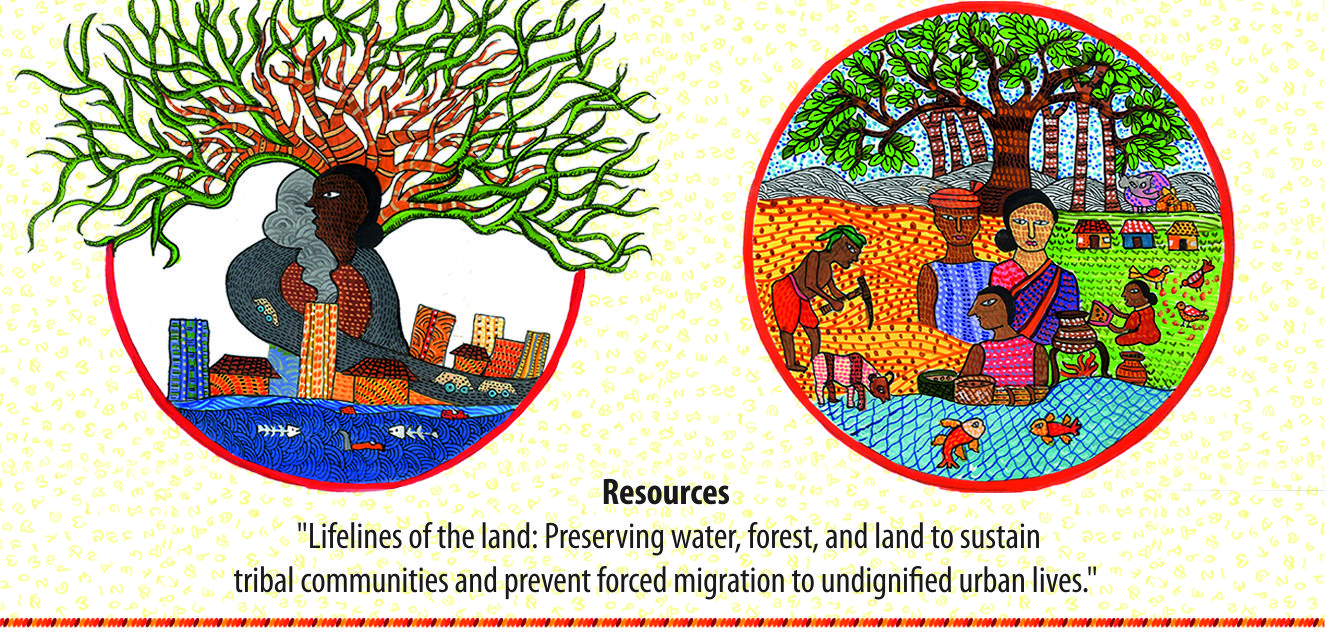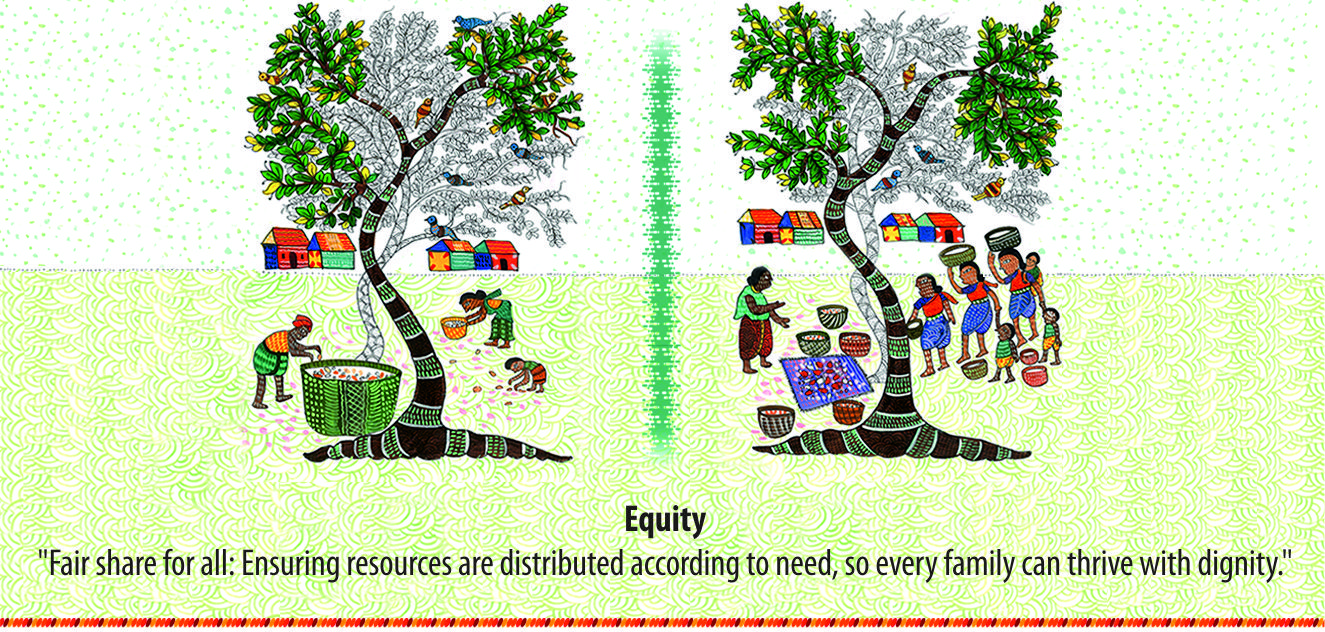




FAQ'S
Our mission is to reach 7 million underprivileged families in the most impoverished states. We are committed to working alongside the poor, marginalized, and excluded communities to foster systemic and social change, with the goal of overcoming poverty, inequality, discrimination, patriarchy, and social injustice.
Our values are – Trust, Equality, Respect, Honesty, Non-Violence, Security, Dignity, and Integrity
We began our work with the overarching goal of raising awareness about rights and entitlements among the most marginalized rural communities, with a particular focus on Adivasis and Dalits. At the time, Odisha was widely regarded as a “poor state” with a large population of Scheduled Tribes. To drive lasting change, we guided the formation of people’s collectives (sangathans), empowering them to take on leadership roles in identifying and collectively addressing their community’s challenges.
Our work centers on empowering underrepresented and marginalized communities in remote rural India. We strive to build informed, empowered communities capable of coming together to address their own issues and engage directly with elected representatives. The ultimate goal for Atmashakti is to see these grassroots communities actively represented in the policy-making process, ensuring their voices shape decisions that impact their lives.
The government plays a crucial role in uplifting and developing underrepresented and marginalized communities. However, despite its best intentions, reaching these remote areas remains a significant challenge. We serve as a bridge between rural communities and the government, ensuring that these populations access the schemes and entitlements designed for their benefit. While we work directly in Odisha, Uttar Pradesh, and Chhattisgarh, our efforts in Rajasthan, Madhya Pradesh, and Jharkhand are implemented through trusted state partners.
Community members contribute a small fee to join the collective, with flexible payment options: Rs. 10 monthly, Rs. 120 annually, or whenever it’s most convenient for them. The strength and sustainability of the collectives, both at district and state levels, are driven by this membership model. To further support village collectives, Atmashakti provides an honorarium to ‘Jansathis,’ who act as vital liaisons between the community and government agencies, ensuring smooth coordination and access to essential services.
Ruchi Kashyap is the Executive Trustee, and she is supported by 3 Board Members, Mr. Man Mohan Singh, Ms. Anuradha Sharma, and Ms. Anjali Banerji.
A Core Team of 9 members based in Noida and Odisha supports the Executive Trustee. We are in the process of forming an Advisory Board.
Atmashakti Trust is funded through the support of our Board of Trustees and dedicated individual donors who share our commitment to the cause.
In our experience, volunteerism cannot be sustained over a long period of time unless they are recognized or compensated for their time and effort. The honorarium we pay the volunteers or ‘paid activists’ helps them to sustain their work and compensate for their time and effort towards the work they do.
No. We limit our work to finding information on existing Government Schemes for marginalized communities and educating communities about the schemes. We mentor the communities on the process of getting themselves included in the government process to get their rights and entitlements and also on the redressal process. At another level, we give recommendations on the service delivery process to the Government for policy-level changes for better and effective implementation.
Atmashakti works with the Government by providing data-backed feedback and recommendations on their policies and their implementation status to achieve common goals and understand the needs of the communities. This helps the government to overcome the challenges and bottlenecks through the information it receives from the grassroots for effective governance. In some of our operational areas, we have collaborated with government departments.
